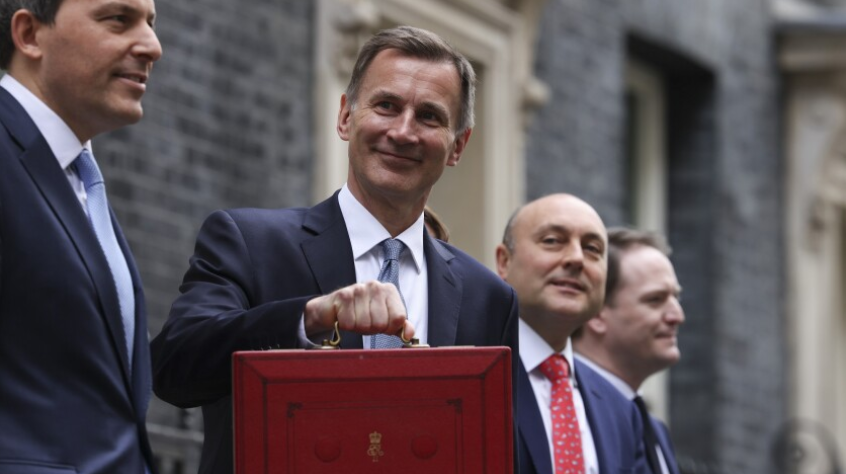Spring Budget 2023 | What was announced?
Posted on 2nd April 2023 at 22:25
Chancellor Jeremy Hunt delivered his Spring Budget on 15 March. In his Budget, the Chancellor focussed on his four Es – Enterprise, Employment, Education and Everywhere.
We discuss the tax implications of the Spring Budget 2023. Key measures announced by the Chancellor are summarised within this Guide.
Corporation tax
From April 2023, the planned increase in the corporation tax rate to 25% for companies with over £250,000 in profits will go ahead.
Small companies with profits up to £50,000 will continue to pay corporation tax at 19%.
Companies with profits between £50,000 and £250,000 will pay tax at the main rate reduced by a marginal relief providing a gradual increase in the effective corporation tax rate.
Pension tax reform
The pensions annual tax-free allowance will increase from £40,000 to £60,000 and Lifetime Allowance will be abolished to help highly skilled individuals continue working for longer.
Energy Price Guarantee extension
The Energy Price Guarantee which caps how much suppliers can charge per unit of energy used will stay in place until June 2023.
- £2,500 typical household cap - Extended until 30 June 2023
- Increases to £3,000 for July 2023 to March 2024
These figures are based on a household with typical consumption on a dual electricity and gas bill paid by direct debit.
Childcare support for one and two-year-olds
A phased package of support has been announced for help with childcare costs for accessing 30 hours of childcare for children over nine months old
In England, all parents of three and four-year-olds can get currently free childcare a year, equating to up to 15 hours a week.
From April 2024, working parents of two-year-olds will be able to access 15 hours of free childcare.
From September 2024, the 15 hours free childcare will be extended to all children aged nine months and up.
From September 2025, every single working parent of under-fives will have access to 30 hours free childcare per week.
The childcare must be with an approved provider.
Childcare costs for Universal Credit claimants - an increase of around 50%
The government will also pay the childcare costs of parents on Universal Credit moving into work or increasing their hours upfront, rather than in arrears – removing a major barrier to work for those who are on benefits. The maximum they can claim will also be boosted to £951 (from £646.35) for one child and £1,630 (from £1,108.04) for two children – an increase of around 50%.
Small business investment allowance increase
Full expensing deduction - all investments in IT equipment, plant or machinery will be immediately deductible from taxable profits.
In order to replace super-deduction, a new Full Expensing deduction is announced from 1 April 2023 until 31 March 2026. The relief allows companies to claim 100% first-year deduction from profit before tax.
Income Tax Rates 2023/24
Personal allowance - £12,570
Basic rate £12,571 - £50,270
- Other income 20%
- Dividend income 8.75%
Higher rate £50,271 - £125,140
- Other income 40%
- Dividend income 33.75%
Additional rate: Over £125,140 (reduced from £150,000)
- Other income 45%
- Dividend income 39.35%
Reducing this threshold will cost £1,243 extra tax as an additional rate taxpayer.
Dividend allowance
- drops from £2,000 to £1,000 from 6 April 2023
- and will drop to £500 from 6 April 2024
Pension changes
State Pension increases by 10.1%to £10,600 in 2023/24 for those with 35 qualifying years
Limited opportunity to ‘top-up’ You can usually pay voluntary contributions for the past 6 years. The deadline is 5 April each year. If you want to make voluntary contributions for the tax year 2016 to 2017, the deadline has been extended. You have until 31 July 2023 to pay.
Top-ups paid at 2022/23 Class 3 rate of £15.85 per week (£824.20 per year)
Pension Annual Allowance increases from £40,000 to £60,000
Lifetime Allowance Charge Abolished – this will benefit those with large pension pots.
If you had stopped contributing to pensions to avoid breaching the LTA or because you had already breached it, you could consider resuming contributions after 6 April. Pensions are a tax-efficient way to build up money because assets within them can grow tax-free.
For 2023/24 annual allowance of £60,000 plus
- any unused amounts from the last 3 tax years - the AA was £40,000 from 2020/21 to 2022/23
The AA is tapered to as low as £10,000 (before 2023/24 with min AA £4,000) if:
- Threshold income > £200,000; and
- Adjusted income > £260,000
Tapered at £1 reduction for every £2 of income over the adjusted income limit
ISA limits 2023/24
Overall limit - £20,000
Junior ISA - £9,000
Child Trust Fund - £9,000
Lifetime ISA - £4,000
R&D Reform
For expenditure incurred on or after 1 April 2023, research and development (R&D) tax reliefs will be changed as follows:
- The small and medium-sized enterprises (SME) additional deduction will decrease from 130% to 86%
• The SME credit rate will decrease from 14.5% to 10%
From April 2024 - Refocusing support on innovation in the UK
- where companies subcontract, they’ll only be able to claim R&D relief where that work is done in the UK
- workers need to be paid through a UK payroll
Check our Blog with detailed guidance on the new R&D tax relief changes:
Inheritance Tax
The inheritance tax nil rate band is frozen at £325,000 until April 2028
The residence nil rate band will also remain at £175,000 and the
Residence nil rate band taper will continue to start at £2 million
CGT annual exemption decrease
Until 5th April 2023 -£12,300
From 6th April 2023 - £6,000
From 6th April 2024 - £3,000
CGT: Separation and divorce
For disposals on/after 6 April 2023:
Proposed measure gives separating spouses or civil partners:
• up to 3 years, after the year they cease to live together, to make no gain no loss
transfers of assets
• unlimited time when the assets are the subject of a formal divorce agreement
VAT thresholds frozen until March 2026
Registration threshold - £85,000
Deregistration threshold - £83,000
New penalty regime in operation for VAT
For late VAT Returns and late VAT payment
Points based system
• Infrequent offenders – less penalty activity
• Frequent offenders – high level of penalty and compliance activity
National Insurance Contributions (NICs)
NIC thresholds also frozen until 5 April 2028.
This means that employers’ NIC will continue to apply at 13.8% to earnings in excess of £9,100 a year.
Employees will continue to pay 12% on earnings between £12,570 and £50,270 and 2% thereafter.
NIC for the self-employed – 2023/24
Where profits exceed £12,570
Class 2 - £3.45 per week
Class 4
- 9% on profits £12,570 - £50,750
- 2% on profits above £50,270
Making Tax Digital
Plans put on hold:
- from April 2026 – sole traders, landlords with income > £50,000
- from April 2027 – sole traders, landlords with income > £30,000
Company car benefits
For electric and ultra-low emission (<75g/km)
- 2022/23, 2023/24 and 2024/25 – frozen to 2%
- 2025-26 – 3%
- 2026/27 – 4%
- 2027/28 – 5%
Company car Benefit in Kind tax is based on a car’s P11D price and CO2 emissions and the driver's marginal tax rate. The BIK appropriate BIK tax percentages shown above apply until 31 March 2028.
You can claim 100% of the costs of installing an electric vehicle charging point as a capital allowance. The government extended the 100% First Year Allowance for electric vehicle charge points to 31 March 2025 for corporation tax purposes and 5 April 2025 for income tax purposes.
National Minimum/Living Wage
The hourly rates applicable from 1 April 2023 are:
• Over 23 £10.42
• 21 to 22 £10.18
• 18 to 20 £7.49
• Under 18 £5.28
• Apprentice £5.28
In Conclusion
The Spring Budget sets out a number of tax measures to boost business investment and remove barriers to work. The Prime Minister’s priority is to halve inflation, grow the economy and reduce government debt.
What is clear is that 2023 remains a year of opportunity and at Chart Accountancy, we are here to work alongside you and help you grow.
For further information, call us on 0333 772 7753 or email [email protected]

Tagged as: Spring Budget 2023
Share this post:



